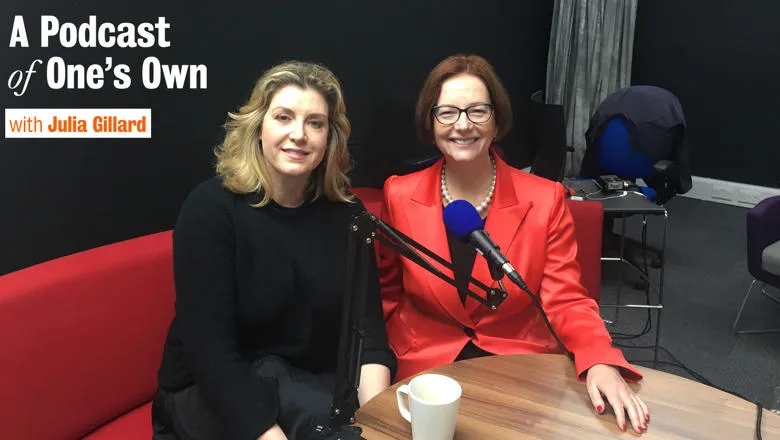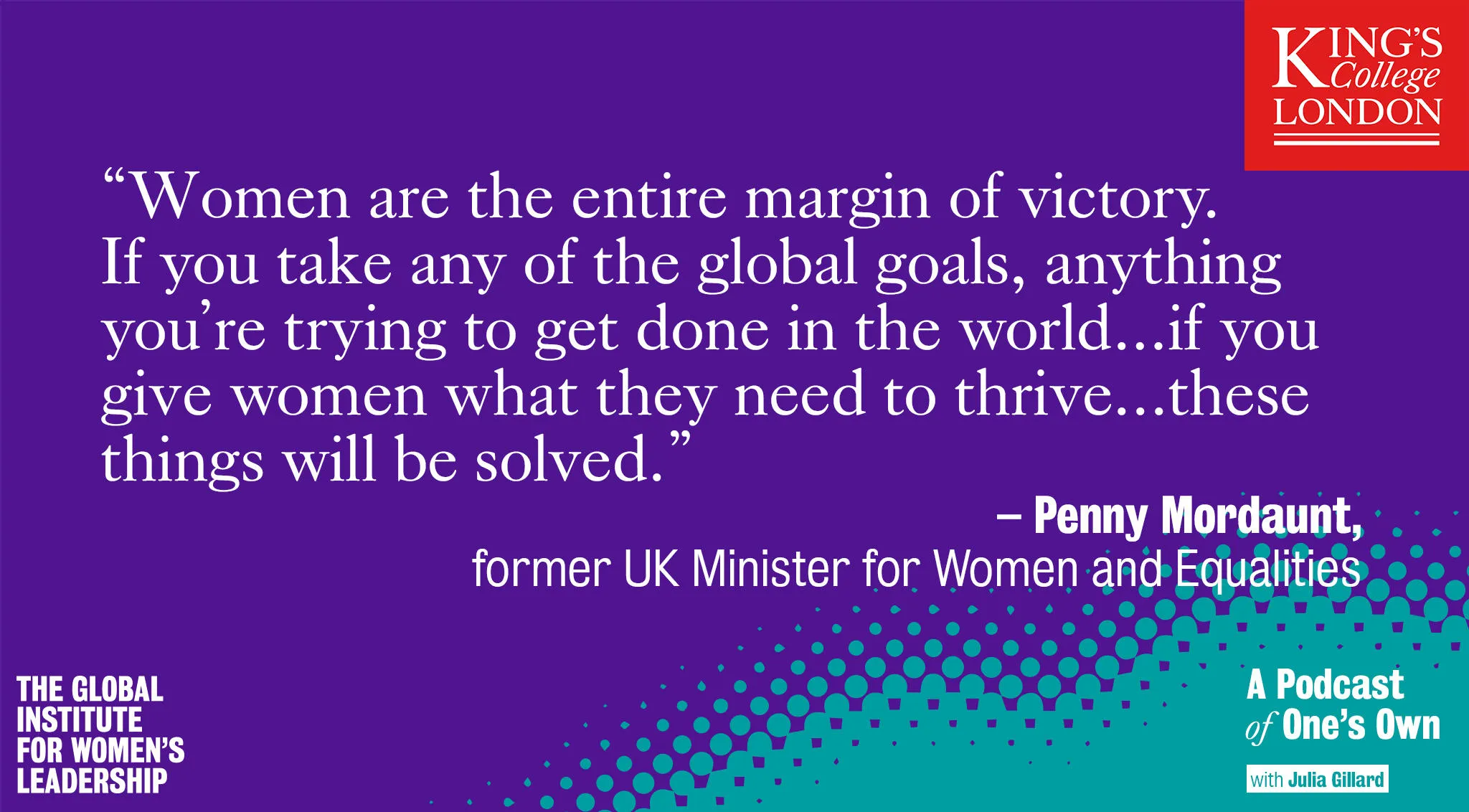07 February 2020
A Podcast of One's Own: Penny Mordaunt on women in the military
The first woman to be UK Defence Secretary, Penny Mordaunt MP, tells Julia why women are a gamechanger in the military.

Conservative MP and former Secretary of State for Defence Penny Mordaunt is Julia Gillard’s guest on the latest episode of A Podcast of One’s Own. She talks about her military upbringing, the challenges women disproportionately face in politics, and how her briefs as International Development and then Defence Secretary opened her eyes to the way empowering women helps solve world challenges.
Mordaunt couldn’t help but feel a connection to the armed forces, having been born into a military family, with her father having served in the paramilitaries during the Falklands War, in the naval city of Portsmouth. She was even named after a ship, the HMS Penelope.
At the age of 15, she sadly lost her mother to breast cancer and had to take on the responsibility for running a household and looking after her younger brother and father:
“The emotional strain of trying to hold everything together…it was a very, very difficult time.”
As she explains, these kinds of caring responsibilities often fall on women:
“We tend to step up…we tend to just get on with it. That’s a great quality, it’s a great strength, but I think one of the thing’s I’ve always seen, and I see it in public policy now, is unless you really take care of women everything else falls over.”
Mordaunt’s passion for politics was awakened during her gap year working in orphanages in Romania, where she witnessed the humanitarian crisis occurring under the Ceaușescu regime. On graduating from university, she joined the Conservative Party and worked her way up under successive leaders. But she had never considered standing as an MP herself until a senior male colleague encouraged her to run:
“I kind of had secretly wanted to but thought: ‘Obviously I’m not cut out for this’…The time it takes for a man to go on that first introductory session to then putting their application form in to become an MP, it’s about a fortnight. For women it’s over a year.
“Our skill sets are sky-high, but our confidence is not there. We’re always thinking: ‘How can I learn more about public policy?’, ‘Do I need some more experience?’…A lot of the fellas are thinking ‘I’m going to be a great MP when can I start?’”
And it’s not only the difference in attitudes that holds women back from standing in politics in Mordaunt’s view:
“Political parties of any hue don’t support their candidates enough. That has a disproportionate effect on women, on disabled people. You know, if you need more money to run or you don’t have deep pockets – and generally it’s women who will have that disadvantage – you are really disadvantaged in this game.”

Following her election as an MP to a seat in her home city of Portsmouth, Mordaunt quickly became a minister before serving in the Cabinet under former Prime Minister Theresa May. Her first role was as Secretary for International Development, which she held in conjunction with the Women and Equalities brief. It was a “powerful” combination, which allowed her share what had worked to tackle gender inequality in the UK with countries around the world, and vice versa. As she explains, gender inequality and international development go hand in hand:
“Women are the entire margin of victory. If you take any of the global goals, anything you’re trying to get done in the world…if you look after women, if you give women what they need to thrive, if you involve women, these things will be solved...That’s not an air-fairy statement…it was so stark.”
Following this role, Mordaunt, who in her spare time had served in the Naval Reserves on military operations, became the UK’s first female Secretary of State for Defence:
“I was aware on day one what a female Secretary of State meant for people in the armed forces, particularly women…but I didn’t really appreciate, I think until I’d left the job, how much it had meant to some people.”
She was not reappointed to the role after Boris Johnson became Prime Minister, but feels proud of what she achieved in the department, particularly in lifting the ban on women serving in close combat roles:
“We need more women because it makes our armed forces more operationally effective…If you have women, the difference that they make if you’re trying to deal with traumatised people, if you’re trying to deal with women who may have been raped in conflict situations, it’s just a gamechanger.”
She was acutely aware of the challenge of not just recruiting but retaining women for a full career in the military, where the issues you face in a normal workplace are doubly difficult because of the lifestyle and time away from family that a military career demand:
“We took such care to ensure that the training that we were going to give people was the right training for women and women’s bodies, because if you set people up to fail or you physically break them, they’re not going to have a full career.”
You can find this and previous episodes of A Podcast of One’s Own, on all the main podcast platforms.
